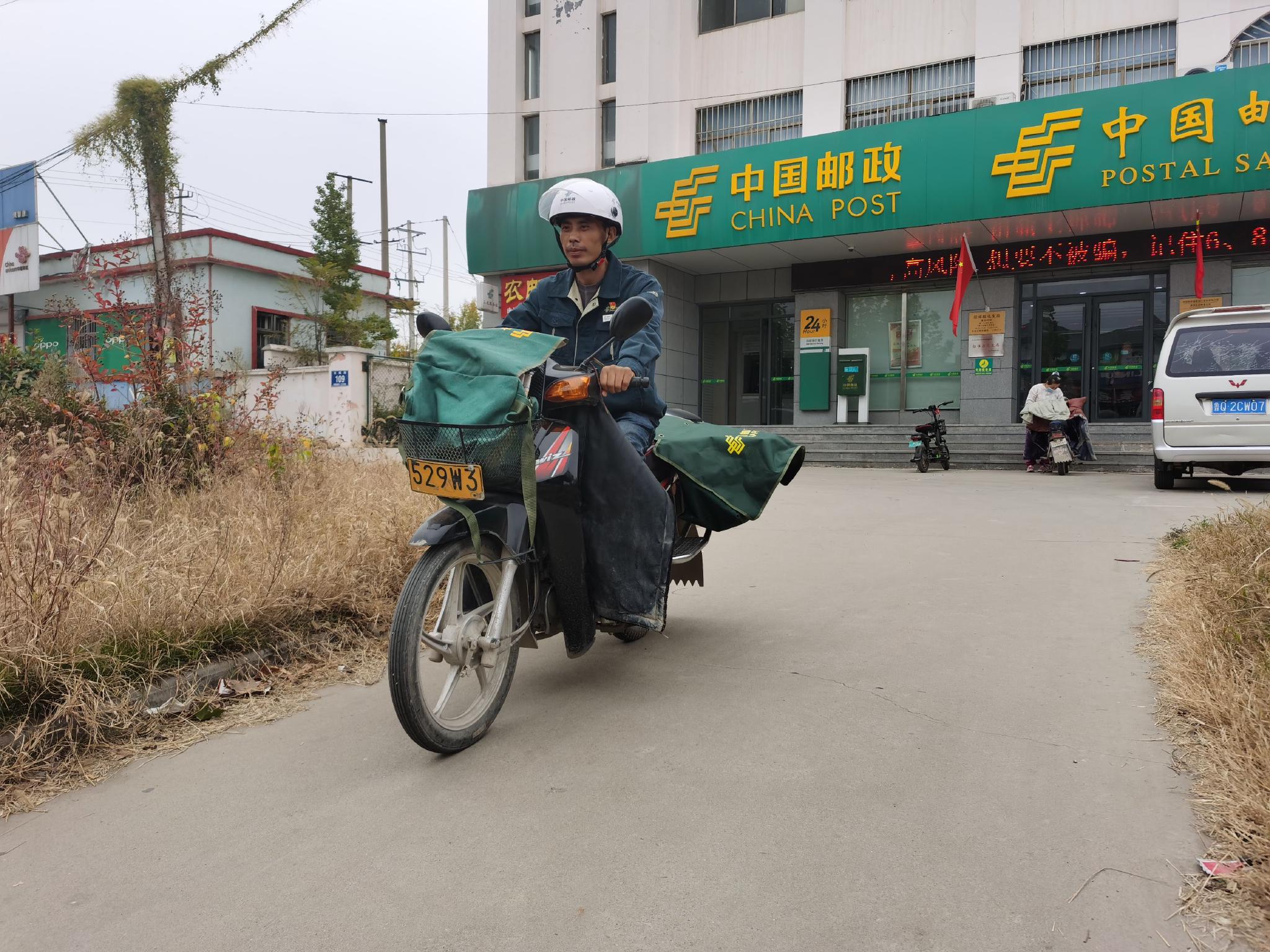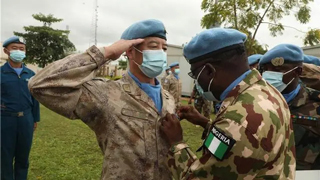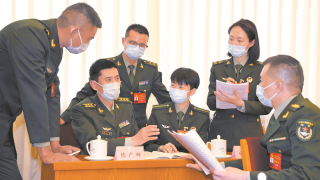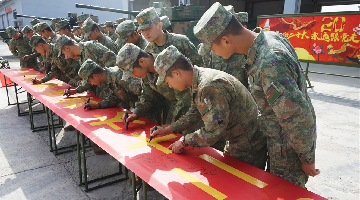
By Yang Wen and Zhang Xinyi
With his green uniform and white helmet, 36-year-old postman Wang Dejian used to travel 60 or 70 kms every day by motorcycle to deliver newspapers and letters to the residents in Tanbu Town, Mengyin County of Linyi, east China's Shandong Province. In addition to the letters and packages to send, there is also a list of martyrs from Shandong Province in his postbag. With the clues recorded in it, Wang Dejian has been looking for families of these martyrs for seven years while doing his own job.
One day back in 2015, when Wang Dejian, a 29-year-old postman, was sorting mail, a letter from Zhanghezhuang Martyrs Cemetery of Heze City, east China's Shandong Province, with the addressee as "Martyr Gong Jianhou" caught his eye. He spent an entire afternoon to search for the addressee, but still failed to get the mail delivered, because it was totally incomplete. Wang Dejian and his colleagues had no other choice but to return the letter according to relevant regulations.
To his surprise, Wang Dejian saw the letter again a year later. This time, there was a line added on the envelope. "The martyr died at the age of 29 in the Heze Campaign in December 1947. Please make more efforts to help the martyr find his home," it read. Wang Dejian was deeply moved by these words.
Twenty-nine is in the best time of one's life. Perhaps, the staff of the martyrs' cemetery was expecting the postman to locate the martyr's family, while the family of the martyr was also waiting for his information. Regardless of the outcome, Wang decided to make even more efforts to help the martyr "go home".
Wang Dejian looked through multiple villages in the town with no information about the Gong Jianhou found. Later, an old man suggested that it might be homophones and the surname was registered incorrectly.
Following this clue, Wang found an octogenarian in a town with a name that read the same to the address on the letter, who provided an important clue. The old man recalled that he had a distant relative with the name of same pronunciation but different Chinese characters. Back in the day when the troops passed the county, Gong joined the armed force after telling tell the decision to his mother, who was busy in the fields, and left home with the troops ever since. After the founding of the People's Republic of China, his mother inquired about the whereabouts of her son at civil affairs department and got heartbroken when hearing that her son had died.
Trying hard, Wang Dejian found Gong Deying, the nephew of Gong Jianhou, who was in his 50s. He couldn't believe this is true when receiving a letter about his past relative uncle for the first time from the postman. The authorities later confirmed the correctness of the identity. Thus, the home-missing soul wandered for nearly 70 years has finally "returned" to his family.
Since then, Wang Dejian has received more and more of such letters. And, he found happiness in helping the martyrs find their relatives.
With the rapid development of urban areas, ever-changing administrative divisions, and the vague memory and oral statements of bailors, it has become even more difficult to find out the martyrs' relatives. Wang Dejian, however, has always insisted on doing this patiently. Over the past seven years, he has helped more than 20 martyrs find their "homes".
According to Wang Dejian, he has in return learned a lot about the Party history, military history and local history, and enjoyed himself in doing so.
"I am just an ordinary postman, and I just did what I could to help pass the messages to the martyrs' families," Wang Dejian said.











